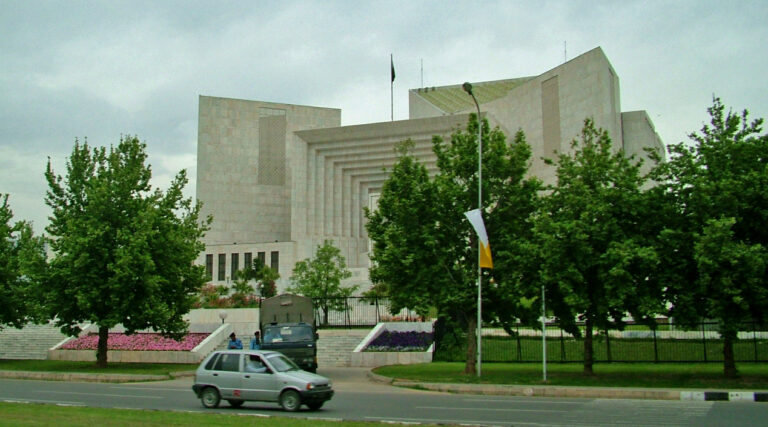
Good Vibes Only: The “Aloha Spirit” in Hawaiʻi Constitutional Interpretation
Aaron Walayat
In 2017, Christopher Wilson, a resident of Maui, Hawaiʻi, was charged by the state for possession of an unregistered pistol, a violation of state statute. He moved to dismiss the charges, arguing that the statutes unconstitutionally infringed on his right to keep and bear arms under both the Hawaiʻi Constitution and the United States Constitution. The case eventually made its way to the Hawaiʻi Supreme Court.
On February 7, 2024, the Hawaiʻi Supreme Court handed down its decision, rejecting Wilson’s argument. Despite the language of the Hawaiʻi Constitution mirroring the text of the Second Amendment, the Hawaiʻi Supreme Court determined that the statutes were not unconstitutional. In making this decision, the Hawaiʻi Supreme Court decided two things: (1) there is no private right to bear arms under the Hawaiʻi Constitution, and (2) the United States Supreme Court’s decision in New York State Pistol and Rifle Association v. Bruen was wrongly decided, and that the Second Amendment should not be interpreted as protecting a private right to bear arms.
Commentators on the left cheered the decision as a revolt against the rightward shift of the U.S. Supreme Court, while commentators on the right, on the other hand, condemned the Wilson decision as a dereliction of constitutional duty. Jordan Boyd, a staff writer for the conservative online publication The Federalist, chastised the Wilson decision as a “whimsical” interpretation which ignored the nation’s longstanding principles and clear U.S. Supreme Court precedent while also expressing concern about the weight that the Hawaiʻi Supreme Court gave to the “Aloha Spirit.”
The short invocation of the “Aloha Spirit” is interesting, as it indicates a unique aspect of Hawaiʻi constitutional interpretation. Case law interpreting the “Aloha Spirit” is scarce, and it has only been cited two times in the context of constitutional interpretation. While this may raise concerns, suggesting that the Hawaiʻi Supreme Court has permitted vague philosophical systems to override the U.S. Constitution, it also offers a starting point for a unique jurisprudence of state constitutional interpretation in Hawaiʻi.
What is aloha?
What is the “Aloha Spirit”? To most Americans, especially those outside of Hawaiʻi, the term is merely a salutation. A vague notion of “aloha”, then, appears as an oddity in the context of a legal decision. Surprisingly, however, “Aloha Spirit” actually has a legal definition under the Hawaiʻi Revised Statutes, and is defined as follows:
“Aloha Spirit” is the coordination of mind and heart within each person. It brings each person to the self. Each person must think and emote good feelings to others.
More than just a greet, the statute defines aloha to mean “mutual regard and affection that extends warmth in caring with no obligations in return,” as the “essence of relationships in which each person is important to every other person for collective existence,” and “to hear what is not said, to see what cannot be seen and to know the unknowable.”
But more than just a sentimental description of what aloha means to the people of Hawaiʻi, it also contains a political charge:
In exercising their power on behalf of the people and in fulfillment of their responsibilities, obligations and service to the people, the legislature, governor, lieutenant governor, executive officers of each department, the chief justice, associate justices, and judges of the appellate, circuit, and district courts may contemplate and reside with the life force and give consideration to the “Aloha Spirit.”
There is nothing immediately strange about a legislature, by statute, providing how a court should interpret the law. For example, in my own state of Pennsylvania, the rules of statutory interpretation are provided by statute. However, unlike in Pennsylvania, the Hawaiʻi statute does not appear to provide rules or guidance for how the individual branches of government in Hawaiʻi should give consideration to the “Aloha Spirit.”
These provisions were signed into law in 1986. In a 2008 essay, writer Keiko Ohnuma took a cynical approach to these statutes, writing that they evoked a “dewy-eyed sentimentality” that has come to define aloha. Ohnuma writes that the word aloha has many definitions, and “did not have its current prominence in pre-contact Hawaiʻi.” If anything, she suggests, aloha appears to have come into prominence because it became a useful shorthand for Christian missionaries.
This suggestion, that “Aloha Spirit” is a mere tourist commodity pitched for sentimentality with little political bite, has some traction, as it appears that the “Aloha Spirit” has rarely been invoked by courts. After all, in Wilson, the Hawaiʻi Supreme Court only cited one case, a concurring opinion from the 2023 decision City & County of Honolulu v. Sunoco LP, in which Justice Todd Eddins criticized the U.S. Supreme Court’s jurisdiction jurisprudence, suggesting that following U.S. Supreme Court precedent would not be in accord with the “Aloha Spirit.”
Aloha jurisprudence
These two cases, Sunoco and Wilson, serve as the foundation for the future of Hawaiʻi’s “Aloha Spirit” jurisprudence in constitutional interpretation. As the jurisprudence is defined by two cases, the meaning of “Aloha Spirit” in Hawaiian constitutional interpretation is still unclear. These decisions provide no method nor any real analysis of the statutory language. Justice Eddins’ concurrence in Sunoco simply restated the statute while his opinion in Wilson merely assumed that the protection of an individual right to bear arms infringes on the constitutional rights of others. The only unifying factor between the application of the “Aloha Spirit” in Wilson and Sunoco is the fact that it is contrary to what the U.S. Supreme Court is doing.
Whereas constitutional originalism attempts to understand the words as they meant at the time they were written (a position which many critics have argued is “illusory”), the application of the “Aloha Spirit” in Hawaiian constitutional interpretation appears instead to imagine an ideal society, thereafter deciding whether the interpretation would be conducive to such a society. In this sense, Jordan Boyd is right to be concerned with the Hawaiʻi Supreme Court’s precedent in Wilson. However, where Boyd goes wrong is her criticism of the Wilson court interpreting identical language in its own constitution differently from the interpretation of the U.S. Constitution. While different interpretations of identical language may appear concerning, there are many reasons for doing so. For example, some commentators have argued that state supreme courts should interpret their own constitutions independently from federal interpretations of the U.S. Constitution. As Justice Christopher McDonald of the Iowa Supreme Court suggested in a concurring opinion to the 2019 decision State v. Brown, it is the duty of a state supreme court to interpret their own state constitution independently.
Despite similar, even identical, language of provisions of state and federal constitutions, there are a number of concerns, including unique state history and tradition, which may have influenced a different interpretation despite shared language. Some sources for unique state history and tradition include, but are not limited to, state constitutional conventions or state ratifying conventions.
Indeed, while the case law on the application of the “Aloha Spirit” is currently sparse, there is no reason to believe it will continue to be so, as Sunoco and Wilson, decided in 2023 and 2024, respectively, suggest a growing interest in analyzing the “Aloha Spirit” in constitutional interpretation. While the current case law suggests a practical weakness of the approach, future case law may begin to develop a method. What the method may look like remains to be seen. That said, the majority’s opinion in Wilson does not appear to focus on any changing meanings of words, but on the ability of the political branches to govern. The concern of the majority appears to focus on whether judicial enforcement of a private right, which would thereby weaken the ability of Hawaiʻi’s political branches of government from legislating on that subject matter, would be in accord with the“Aloha Spirit.” This would suggest that an“Aloha Spirit” jurisprudence is more concerned with the ability of the political branches to exercise their powers for public policy rather than on changing meanings of text.
The Hawaiʻi Supreme Court’s criticism of the constitutional originalism of the U.S. Supreme Court is an important reminder. Every state constitution is different, and there is no obligation to interpret state constitutions in lockstep with the federal. Some commentators have suggested that originalism, particularly original public meaning originalism, has been the traditional way that the U.S. Supreme Court has analyzed the federal Constitution. Regardless of whether these justifications for originalism in federal constitutional jurisprudence are valid, these reasons by no means justifies originalism in individual state constitutional jurisprudence. Some state supreme courts, like Georgia, have expressly determined that its constitution must be interpreted by its “original public meaning.” But that does not mean that every state supreme court must also apply the original public meaning, and a state is free to determine its own constitution by the methods that the people of that state believe their constitution should be interpreted. By that logic, the people of Hawaiʻi may very well want its constitutional interpretation to be guided by the “Aloha Spirit,” whatever that means.
The future of the “Aloha Spirit”
While the current usage of “Aloha Spirit” by the Hawaiʻi Supreme Court may be problematic given its current lack of method, it is important to note that neither Sunoco or Wilson were decided on the basis of aloha alone. Rather, each case applied its own legal analysis. Whether that analysis is correct is a matter of debate among legal commentators. Rather, it will be interesting to see how the Hawaiʻi Supreme Court develops the legal concept of the “Aloha Spirit,” likely by breaking down and analyzing the individual definitions of the statute itself. It will be interesting to see what “Aloha Spirit” will mean for the future interpretation of the Hawaiʻi Constitution.
The American system of federalism was designed with the acknowledgment that each state joined the Union with a unique history and tradition, and in such a diverse country, it is critical to understand how these unique features inspire the state constitutions, the documents that the people of the individual states themselves ratified in order to constitute themselves. ♦

Aaron Walayat is an attorney based in Pittsburgh, Pennsylvania. He graduated with his J.D. from Emory University in 2019 and his B.A. from Washington & Jefferson College in 2016. While at Emory, he was a former member of the Journal of Law and Religion.
Recommended Citation
Walayat, Aaron. “Good Vibes Only: The “Aloha Spirit” in Hawaiʻi Constitutional Interpretation.” Canopy Forum, October 24, 2024. https://canopyforum.org/2024/10/24/good-vibes-only-the-aloha-spirit-in-hawaiʻi-constitutional-interpretation/.
Recent Posts










